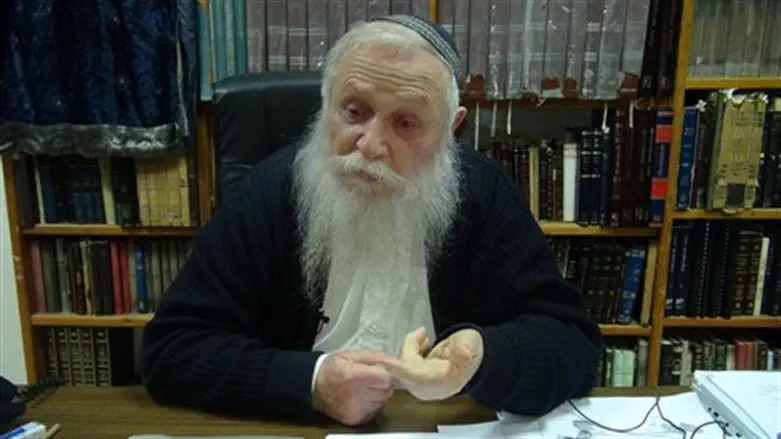
At the beginning of the Pesach Seder we say: “Today we are here; next year in Eretz Yisrael. Today we are slaves; next year (when we will be in Eretz Yisrael) free men.”
Today, with thanks to Hashem, we have the merit of living in the Land of Israel as free men. Why then do we continue on Seder Night to yearn to be free men in Eretz Yisrael? We already are! Is there not a bit of ingratitude in this? Instead of thanking Hashem for what He has done for us, we continue to speak as if nothing has changed!?
It is important to note that in all of our prayers we don’t pray only for ourselves. Rather we pray for the welfare of all the Jewish People. For example, even if a person is completely healthy, he or she continues to pray for health – not for himself – but for all the sick people of Israel. Yirmiahu the Prophet declares: “Heal me Hashem and I will be healed; save me and I will be saved, for You are my praise” (Yirmiahu, 17:14).
The Members of the Great Assembly changed the wording to be in the plural: “Heal us, Hashem and we will be healed; save us and we will be saved, for You are our praise.” The prayer is for all Clal Yisrael, for all the Congregation of Israel, and not just for the individual worshipper.
Even if we ourselves are sitting in the Land of Israel on Seder Night we don’t forget the entirety of the Nation, a large part of whom remain embedded in foreign gentile lands.
The same is true regarding the hope which we express: “This year we are slaves; next year free men.” Every place outside the Land of Israel is galut and this is a difficult and grave situation. Beyond the great danger of assimilation which is so prevalent in foreign places, one must realize that the essence of exile is a horrible subjugation, in and of itself, to alien cultures and identities, and a desecration of Hashem, as the Prophet Ezekiel tells us. The only place where a Jew can be truly free is in Eretz Yisrael. Here as well we pray for Clal Yisrael and not just for ourselves.
Nevertheless, our requests are not only for our brothers who still dwell in exile; but also for ourselves. Even though we are already in the Land of Israel, we have only returned to a part of our Land and not yet to all of it. We must also continue to pray for this matter, to pray and to make every practical endeavor possible to achieve the hope of “Next year in Eretz Yisrael” – to all of our promised borders! We don’t feel ingratitude toward Hashem for the portion which He has granted us so far – rather we pray to reach full possession of all of our Homeland in all of its wide borders.
After the Six Day War, we held the Pesach Seder in Hevron, the first Seder since the city was redeemed from the Arabs. I said to everyone present: “At last year’s Seder we prayed ‘this year we are here – next year in Eretz Yisrael.’ Little did we know what the Master of World had in plan for us – to grant us to sit this year in Hevron, and in our undivided Jerusalem, and throughout Judea and Samaria! And thus we continue to pray, “Next year in all of the wholeness of Eretz Yisrael!”
We have yet to reach the “the place of rest and inheritance” in all of their fullness. Until we attain all of our inheritance we will not have rest.
“Next year we will be free men” – even though in our Land we are free to learn Torah and to live a life of Torah, we have not yet reached the point where Medinat Yisrael is “free” - cleansed and liberated from subjugation to foreign cultures and ideologies. For this too we continue to pray, and with the assistance of Hashem, this freedom also we shall achieve!
For all of these matters, we must continue to beseech from deep in our hearts, “Next year in Eretz Yisrael!” All of Am Yisrael in all of Eretz Yisrael. And with this – “Next year free men” – completely free from every stain of foreign gentile cultures, with the light of Torah shining brightly throughout all of our Nation in all of our Statehood and Land.
[Translated by Tzvi Fishman]